
Frankfurt: The Heartbeat of Modern Germany
Frankfurt, a city where old meets new, is a fascinating destination for tourists from all over the world. Situated on the banks of the River Main, it is known for its modern skyline, dominated by tall skyscrapers, as well as its historic buildings that tell tales of a rich past. The Römer, a medieval building that has served as the city hall for over 600 years, is a must-see. Nearby, the St. Bartholomew's Cathedral stands as a testament to gothic architecture and history. Frankfurt is also a cultural hub. The city is home to many museums, such as the Städel Museum, which offers a vast collection of European art. For literature enthusiasts, the Goethe House, where the famous writer Johann Wolfgang von Goethe was born, is a highlight. Don't miss the Palmengarten, a beautiful botanical garden that provides a peaceful escape from the urban hustle. Shopping enthusiasts will find their paradise on the Zeil, one of Germany's most famous shopping streets. Frankfurt also offers a variety of dining options, from traditional German cuisine in cozy apple wine taverns to international gourmet restaurants. The city's vibrant nightlife, with its numerous bars and clubs, ensures that the fun continues well after the sun sets.
Local tips in Frankfurt
- Visit the Kleinmarkthalle for local delicacies and a glimpse into Frankfurt’s culinary scene.
- Take a walk along the River Main for stunning views of the city’s skyline.
- Consider purchasing a Frankfurt Card for discounts on public transport and entry to many attractions.
- Explore Sachsenhausen, a district known for its traditional apple wine taverns and vibrant nightlife.
- Check the schedule of events at the Frankfurt Book Fair, one of the largest book fairs in the world.
Neighbourhoods in Frankfurt
Frankfurt: The Heartbeat of Modern Germany
Frankfurt, a city where old meets new, is a fascinating destination for tourists from all over the world. Situated on the banks of the River Main, it is known for its modern skyline, dominated by tall skyscrapers, as well as its historic buildings that tell tales of a rich past. The Römer, a medieval building that has served as the city hall for over 600 years, is a must-see. Nearby, the St. Bartholomew's Cathedral stands as a testament to gothic architecture and history. Frankfurt is also a cultural hub. The city is home to many museums, such as the Städel Museum, which offers a vast collection of European art. For literature enthusiasts, the Goethe House, where the famous writer Johann Wolfgang von Goethe was born, is a highlight. Don't miss the Palmengarten, a beautiful botanical garden that provides a peaceful escape from the urban hustle. Shopping enthusiasts will find their paradise on the Zeil, one of Germany's most famous shopping streets. Frankfurt also offers a variety of dining options, from traditional German cuisine in cozy apple wine taverns to international gourmet restaurants. The city's vibrant nightlife, with its numerous bars and clubs, ensures that the fun continues well after the sun sets.
When is the best time to go to Frankfurt?
Iconic landmarks you can’t miss
Römerberg
Discover Römerberg, Frankfurt's historic heart: a captivating square where medieval charm meets modern vibrancy, offering a glimpse into Germany's rich past and vibrant present.

Iron Footbridge
Walk across Frankfurt's iconic Iron Footbridge, a historic landmark connecting the city center to Sachsenhausen, offering stunning skyline views and a romantic atmosphere.

Zoo Frankfurt
Discover a world of wildlife in the heart of Frankfurt at Zoo Frankfurt, home to over 4,500 animals and a leading center for conservation and education, offering an unforgettable experience for all ages.
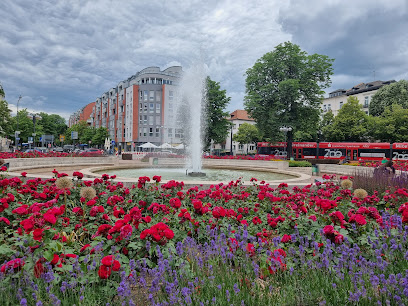
Städel Museum
Discover seven centuries of European art at the Städel Museum, Frankfurt's premier art institution, showcasing masterpieces from the Middle Ages to contemporary works.
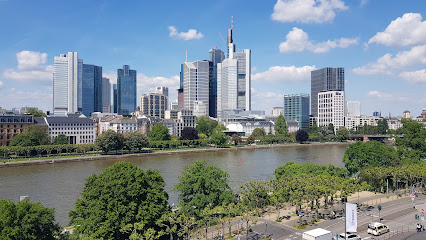
Frankfurt Cathedral
Explore Frankfurt Cathedral, a Gothic masterpiece and former coronation site of Holy Roman Emperors, offering stunning architecture and panoramic city views.

Goethe House
Explore the birthplace of Johann Wolfgang von Goethe in Frankfurt, a meticulously reconstructed 18th-century house offering a glimpse into the life of Germany's greatest writer and his family.
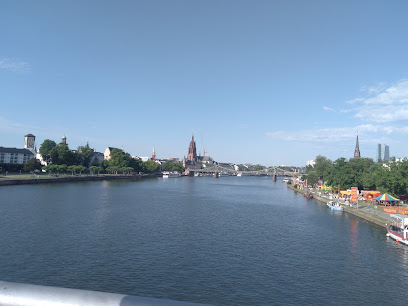
Frankfurter Römer
Discover the Frankfurter Römer, Frankfurt's iconic city hall, a symbol of history and culture in the heart of the Altstadt, surrounded by charming half-timbered houses and vibrant city life.
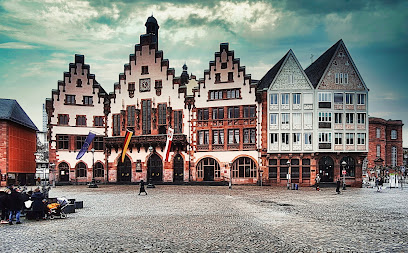
Historisches Museum Frankfurt
Explore Frankfurt's captivating history at the Historisches Museum, from Roman settlements to a modern metropolis, through immersive exhibits and historical artifacts.
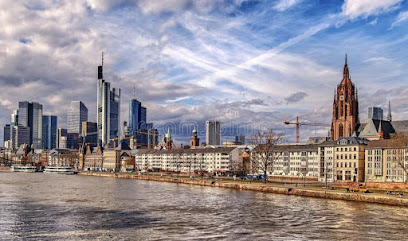
Holbeinsteg
Experience Frankfurt from Above: Holbeinsteg, the iconic pedestrian bridge connecting culture and commerce with stunning skyline views and a gentle sway over the Main River.
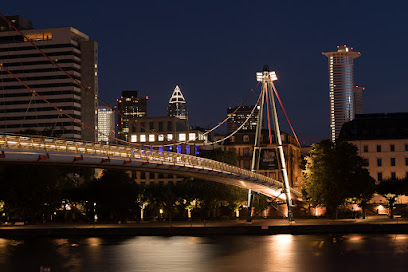
Brockhaus Fountain
Discover the captivating Brockhaus Fountain on Frankfurt's Zeil, a unique marble sculpture blending modern motifs with artistic tradition in the heart of the city's bustling shopping district.
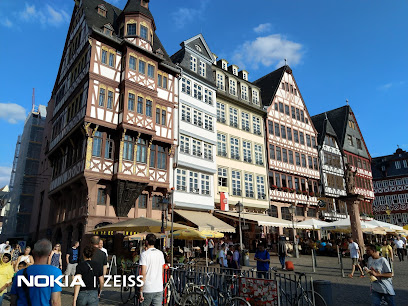
New Old Town
Discover Frankfurt's medieval heart: a meticulously reconstructed Old Town blending history with modern life, offering a unique cultural experience in the heart of the city.
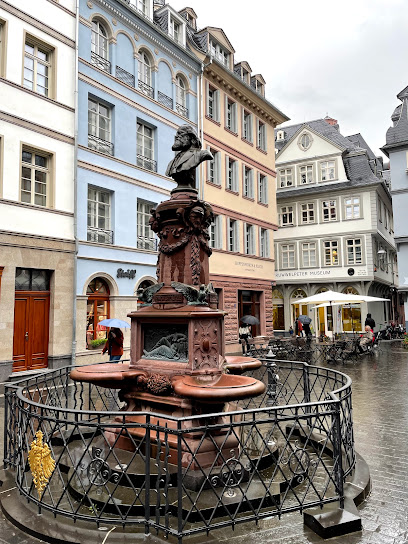
Dom-Römer-Quartier
Step back in time in Frankfurt's Dom-Römer-Quartier, a meticulously reconstructed old town where history and modern life intertwine, offering a unique cultural experience.
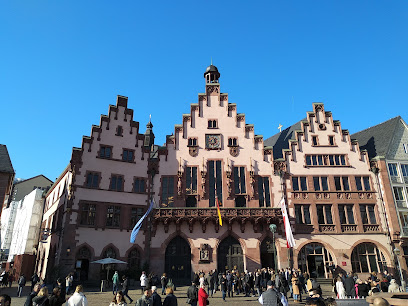
Domturm
Discover the breathtaking panoramic views of Frankfurt from the iconic Domturm observation deck, a historical gem in the heart of the city.
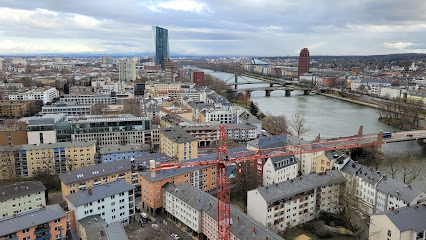
Frankfurter Märchenbrunnen
Discover Frankfurt's enchanting Märchenbrunnen, a stunning Art Nouveau fountain near Willy-Brandt-Platz, where fairytale magic meets artistic heritage in a tranquil urban oasis.
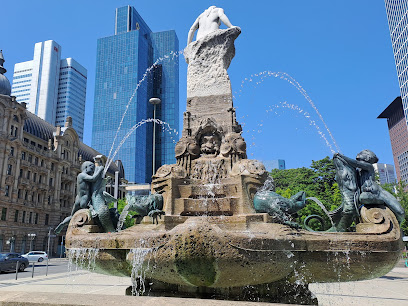
fountain of justice
Discover Frankfurt's heart at the Fountain of Justice in Römerberg, a timeless symbol of law and history surrounded by charming architecture and vibrant city life.
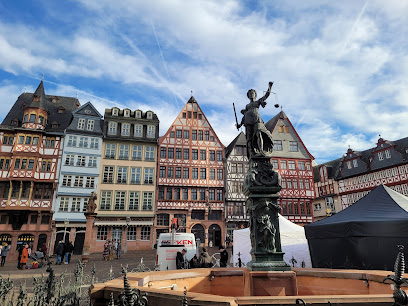
Unmissable attractions to see
Römerberg
Explore Römerberg, Frankfurt's historic square, where medieval architecture meets vibrant culture in the heart of the city's history.
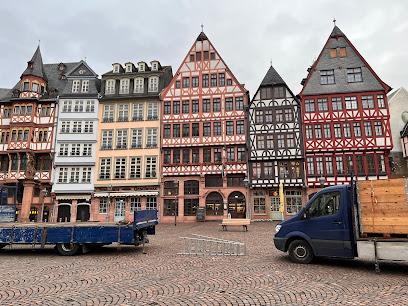
Iron Footbridge
Explore the historic Iron Footbridge in Frankfurt, a scenic pedestrian bridge with stunning views and vibrant local culture.
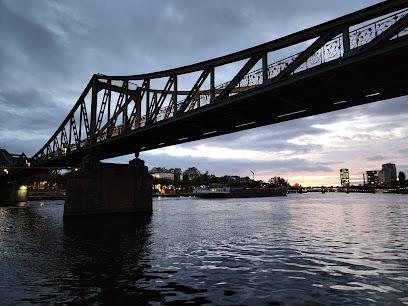
Deutsche Bank Park
Experience the excitement of live sports and music at Deutsche Bank Park, the heart of Frankfurt's vibrant cultural scene.
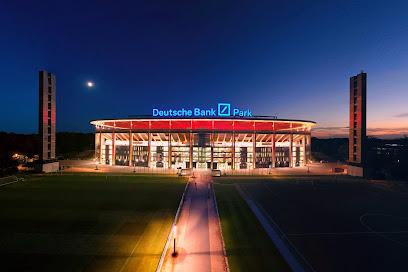
Zoo Frankfurt
Discover the rich biodiversity and educational experiences at Zoo Frankfurt, a premier destination for families and wildlife enthusiasts in the heart of Germany.
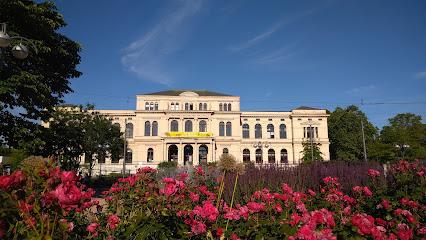
Zoo Frankfurt
Discover the beauty of nature at Zoo Frankfurt, home to thousands of animals and unforgettable family experiences in the heart of the city.
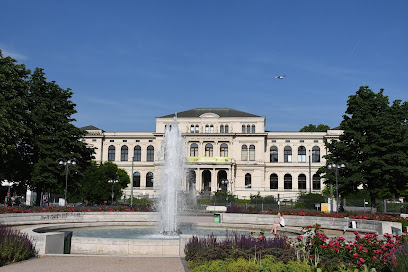
Palmengarten Frankfurt
Explore the enchanting Palmengarten in Frankfurt, a botanical paradise showcasing vibrant flora and serene landscapes in a city oasis.
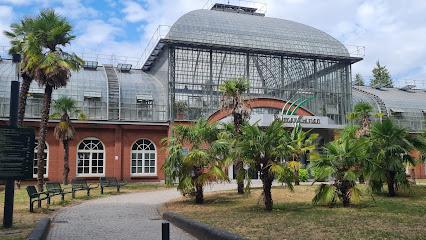
Alte Oper
Discover the grandeur of Alte Oper, Frankfurt's iconic opera house and a must-visit for cultural enthusiasts and tourists alike.
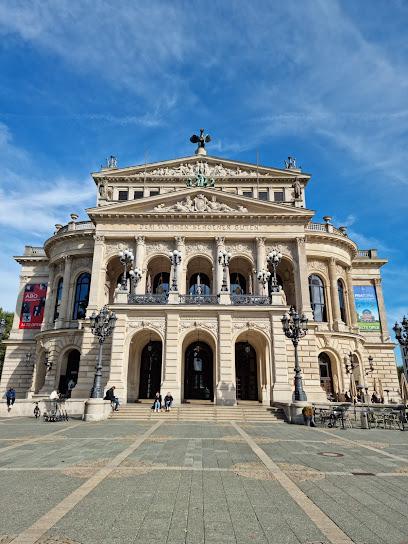
Städel Museum
Explore the Städel Museum in Frankfurt, a premier destination for art lovers, featuring masterpieces from the Middle Ages to contemporary works.
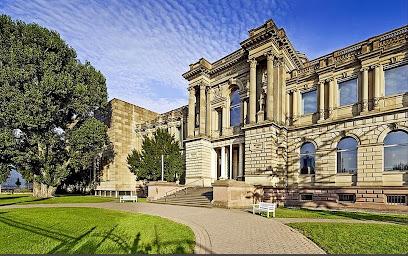
Mainz Cathedral
Discover the architectural splendor of Mainz Cathedral, a historical gem in Germany showcasing stunning Romanesque design and rich cultural heritage.
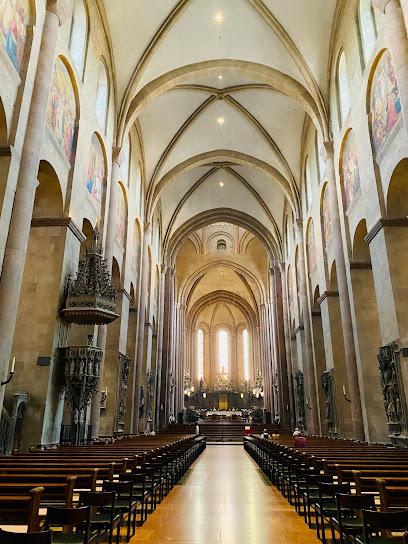
Frankfurt Cathedral
Discover the stunning Gothic architecture and rich history of Frankfurt Cathedral, a must-visit landmark in the heart of Frankfurt.
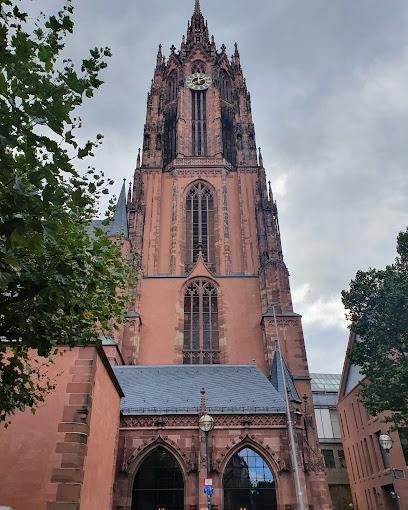
Johannisburg Palace
Discover the stunning Johannisburg Palace in Aschaffenburg, a magnificent Renaissance castle surrounded by beautiful gardens and rich history.
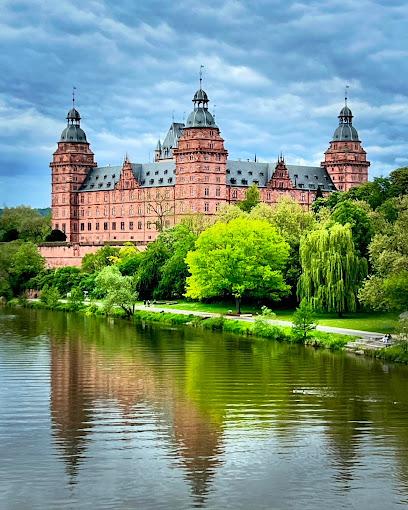
Schloss Braunfels
Discover the enchanting Schloss Braunfels, a stunning medieval castle offering rich history and breathtaking views in the heart of Germany.
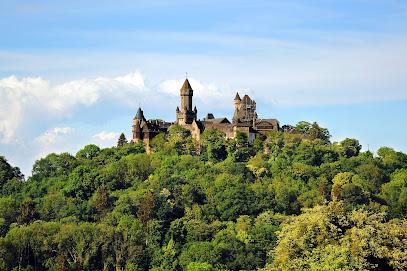
Saalburg
Explore the ancient Saalburg Fortress near Bad Homburg, a UNESCO site showcasing Roman history, architecture, and breathtaking views.
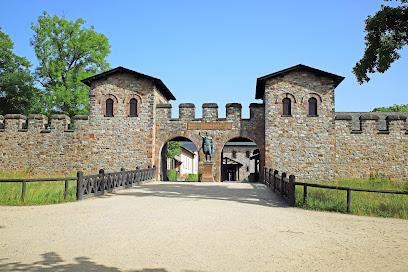
Ronneburg Castle
Experience the enchanting Ronneburg Castle, a historical gem offering stunning views and fascinating museum exhibits in Germany's scenic landscape.
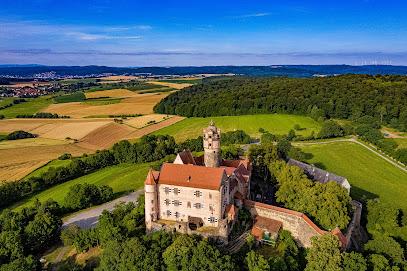
Goethe House
Immerse yourself in the rich literary heritage of Johann Wolfgang von Goethe at Goethe House, a must-visit museum in Frankfurt.
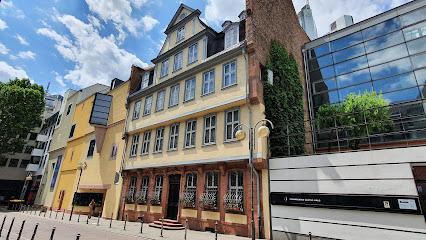
Essential places to dine
Kish Restaurant
Discover Kish Restaurant in Frankfurt - An Authentic Persian Culinary Experience Filled with Flavor and Hospitality.
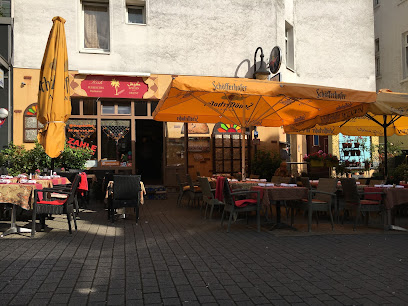
Apfelwein Wagner
Experience authentic German cuisine at Apfelwein Wagner, where traditional flavors meet warm hospitality in Frankfurt's charming setting.
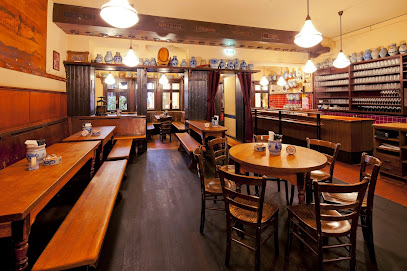
Paulaner am Dom
Discover authentic German cuisine at Paulaner am Dom in Frankfurt – a perfect blend of tradition and vibrant atmosphere.
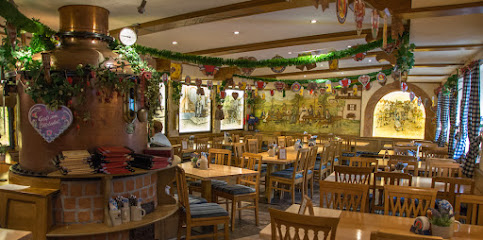
Zum Gemalten Haus
Savor authentic German cuisine at Zum Gemalten Haus in Frankfurt am Main – a culinary gem offering traditional flavors and warm hospitality.
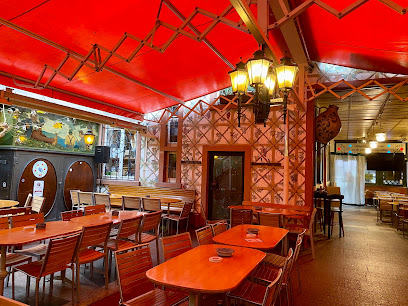
Im Herzen Afrikas
Experience authentic Eritrean cuisine at Im Herzen Afrikas in Frankfurt - where every meal tells a story of culture and flavor.
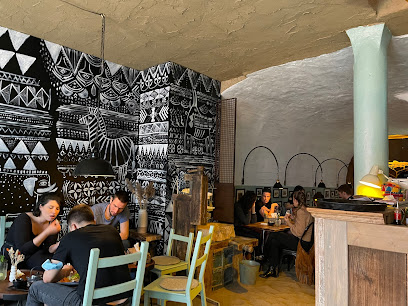
Gaststätte Atschel
Experience authentic German cuisine at Gaststätte Atschel in Frankfurt - where tradition meets flavor in every dish.
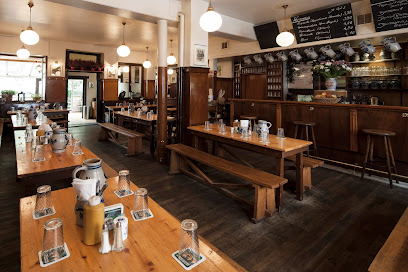
Römer Pils Brunnen
Experience authentic German cuisine at Römer Pils Brunnen in Frankfurt - where tradition meets taste in a cozy atmosphere.
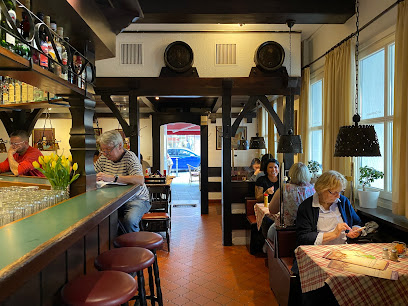
MainNizza
Experience authentic German cuisine with stunning river views at MainNizza in Frankfurt - where tradition meets elegance.
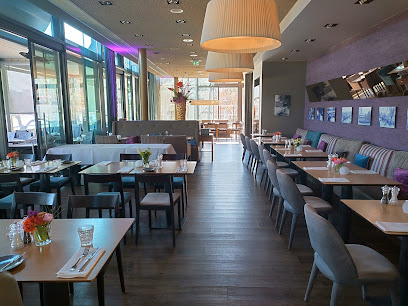
Ebbelwoi Unser
Discover authentic German flavors at Ebbelwoi Unser in Frankfurt, where every dish tells a story of local tradition and culinary excellence.
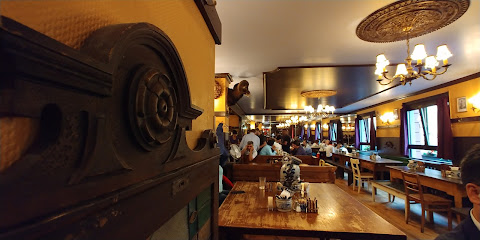
African Queen Restaurant
Discover authentic Eritrean flavors at African Queen Restaurant in Frankfurt - where every meal is a celebration of East African culture.
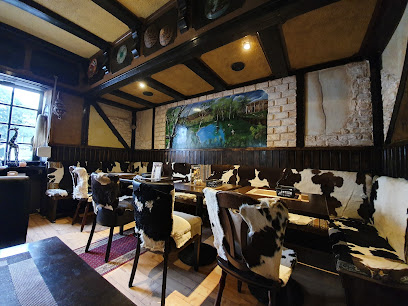
GIOIA
Experience authentic Italian flavors at GIOIA in Frankfurt—where every meal is a celebration of Mediterranean cuisine.
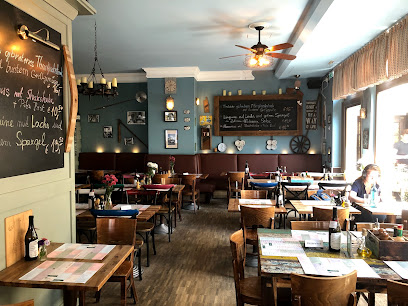
Salzkammer
Discover the essence of Austrian cuisine at Salzkammer in Frankfurt—where tradition meets taste.
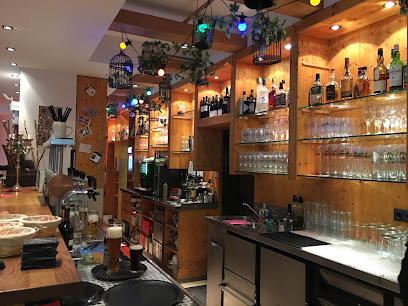
Ariston Restaurant
Discover authentic Greek cuisine at Ariston Restaurant in Frankfurt – where every meal is a delightful journey through Mediterranean flavors.
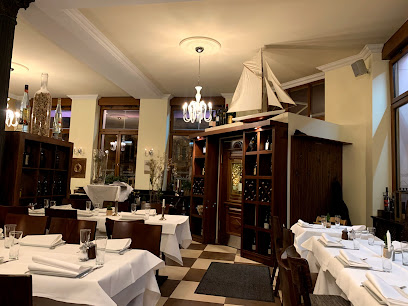
Druckwasserwerk
Experience exquisite European cuisine at Druckwasserwerk in Frankfurt—where culinary artistry meets modern elegance.
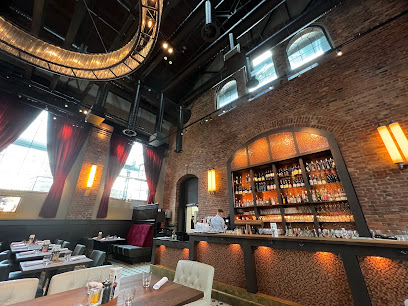
Medici
Discover Medici in Frankfurt – where modern European meets Mediterranean flavors in a stylish setting.
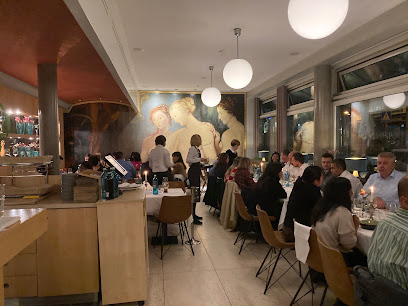
Markets, malls and hidden boutiques
Primark
Explore Primark in Frankfurt for trendy clothing at unbeatable prices, right in the heart of the city's vibrant shopping district.
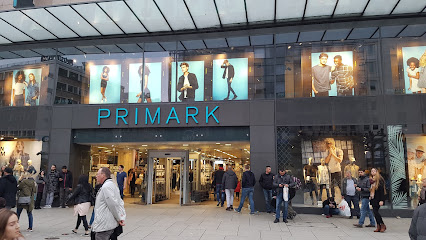
Urban Outfitters
Explore Urban Outfitters in Frankfurt for unique fashion, eclectic gifts, and stylish home goods that capture the essence of urban chic.
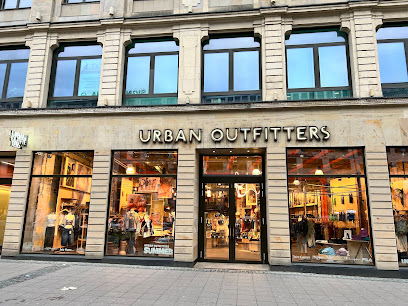
Elbenwald
Discover a magical shopping experience at Elbenwald in Frankfurt, where fantasy meets creativity with exclusive merchandise from your favorite worlds.
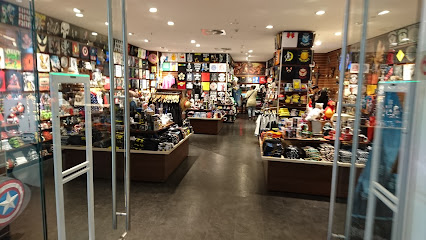
VIVIRY Abendkleider Frankfurt
Discover elegance at VIVIRY Abendkleider in Frankfurt, the perfect destination for exquisite evening wear and stylish accessories.
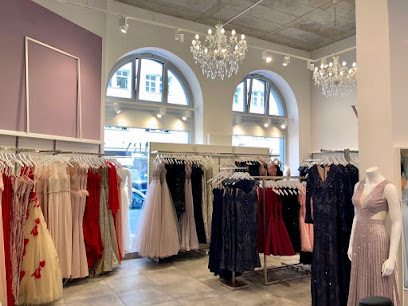
Gucci - Frankfurt Goethestrasse
Discover the luxury of Gucci in Frankfurt's prestigious Goethestraße, where fashion and elegance come together in a unique shopping experience.
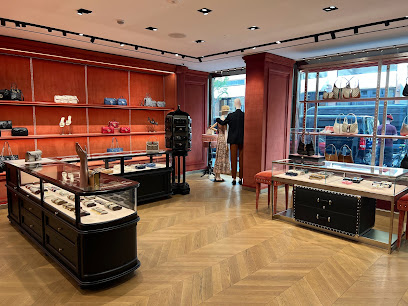
Kaiserpassage
Experience the vibrant energy and diverse shopping options at Kaiserpassage, the ultimate shopping destination in Frankfurt.
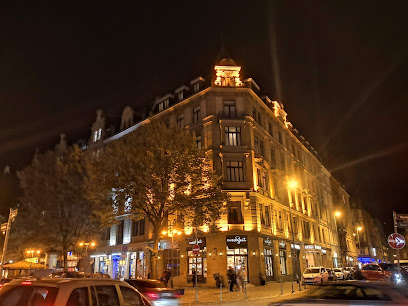
CHANEL BOUTIQUE FRANKFURT
Discover elegance and sophistication at Chanel Boutique Frankfurt, a must-visit for luxury fashion enthusiasts seeking premium clothing, jewelry, and fragrances.
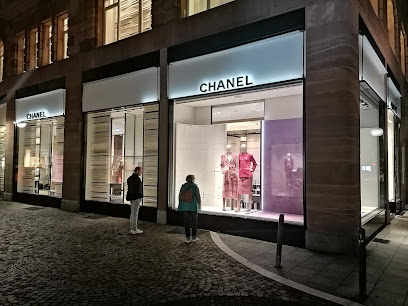
The Listener GmbH
Discover unique fashion pieces at The Listener GmbH, Frankfurt's trendy clothing store offering a curated selection for every style and occasion.
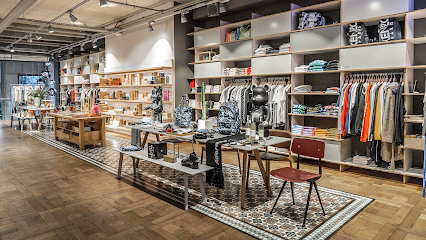
Lufthansa WorldShop
Explore Lufthansa WorldShop in Frankfurt for premium luggage, travel accessories, and exclusive Lufthansa merchandise, perfect for every traveler.
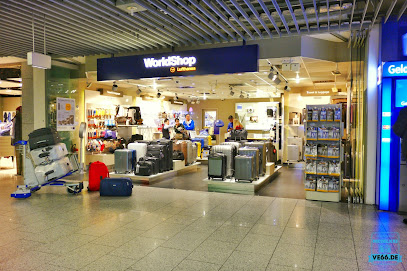
Carhartt WIP Store Frankfurt
Discover the essence of streetwear at Carhartt WIP Store Frankfurt, where fashion meets function in a stylish urban setting.
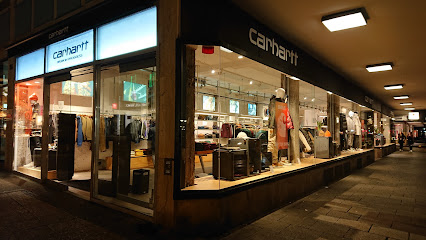
Kauf Dich Glücklich Frankfurt
Discover trendy fashion and unique lifestyle products at Kauf Dich Glücklich Frankfurt, a vibrant clothing store in the heart of the city.
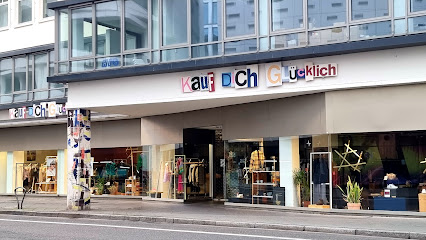
Hessen Shop Sachsenhausen
Discover Hessen's charm at Hessen Shop Sachsenhausen, where unique souvenirs and local delights await every traveler.
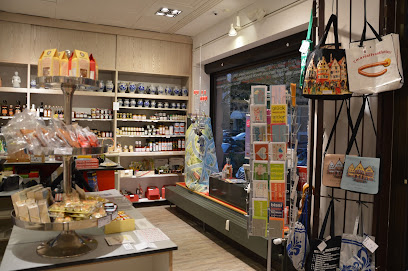
& Other Stories
Discover contemporary women's fashion and stylish accessories at & Other Stories in the heart of Frankfurt, a must-visit for fashion-savvy tourists.
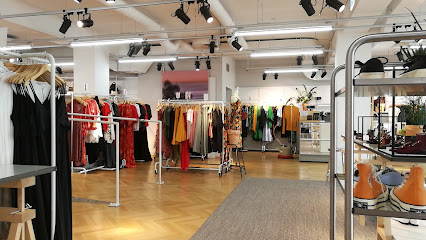
DIOR Frankfurt Goethestrasse
Discover luxury and sophistication at DIOR Frankfurt Goethestrasse, the ultimate destination for high-end women's fashion and timeless elegance.
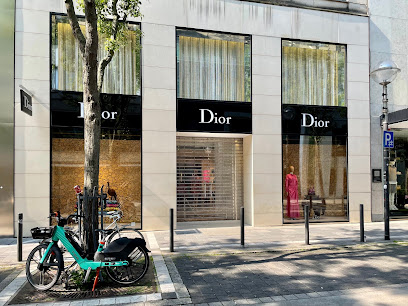
sündige mode
Explore unique fashion at Sündige Mode in Frankfurt, the ultimate clothing store for bridal, formal, and everyday wear.
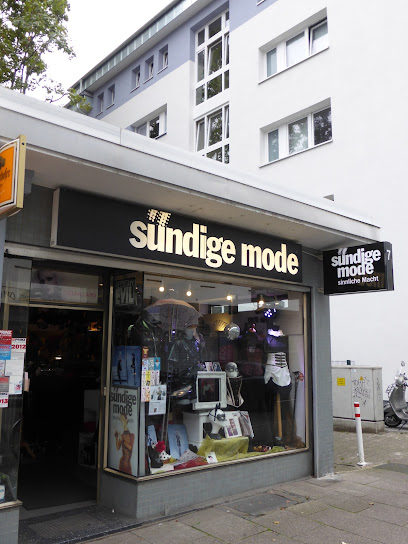
Essential bars & hidden hideouts
Bar Helium Frankfurt am Main
Experience the vibrant nightlife at Bar Helium in Frankfurt, where innovative cocktails and a lively atmosphere await you.
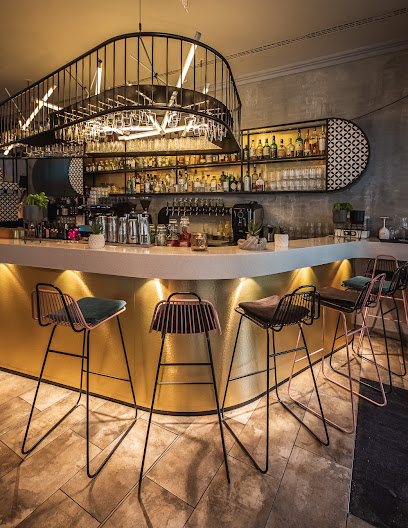
Sullivan
Discover Sullivan, Frankfurt's premier cocktail bar, where exquisite drinks and a vibrant atmosphere await you in the city's nightlife scene.
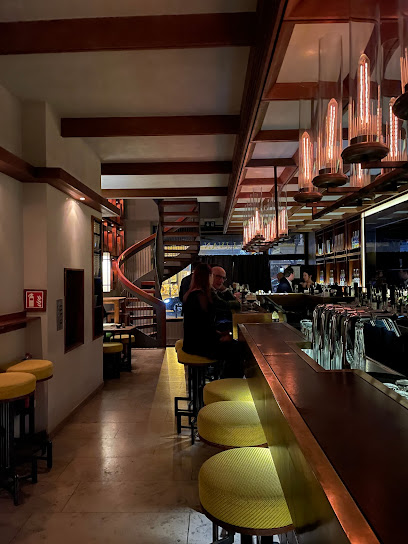
Embury Bar Frankfurt am Main
Discover Embury Bar in Frankfurt: A cocktail bar with a vibrant atmosphere, live music, and unforgettable drinks in the heart of the city.
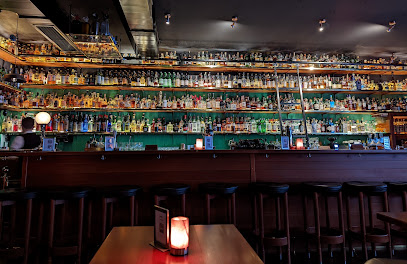
Antony's Bar - Frankfurt am Main
Discover the vibrant atmosphere and exquisite cocktails at Antony's Bar, a must-visit cocktail haven in Frankfurt am Main.
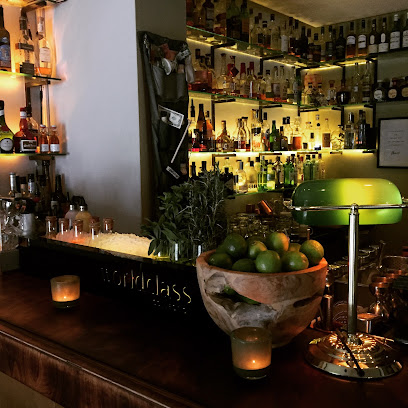
Hunky Dory Bar - Frankfurt am Main
Discover the vibrant Hunky Dory Bar in Frankfurt – where unique cocktails and a lively atmosphere create unforgettable nights.
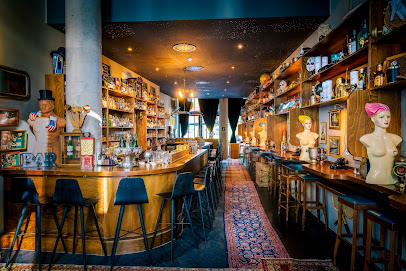
Rote Bar
Experience the art of mixology at Rote Bar, Frankfurt's upscale cocktail bar with stunning views and a vibrant nightlife atmosphere.
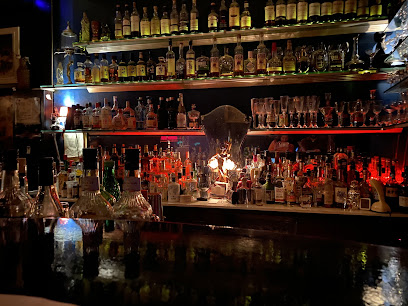
Logenhaus-Bar
Discover the lively Logenhaus-Bar in Frankfurt, a cocktail haven blending unique ambiance with exceptional service for an unforgettable night out.
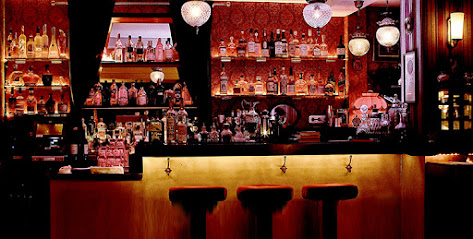
theplacetobe
Experience vibrant nightlife at theplacetobe, a cozy bar in Frankfurt offering eclectic drinks and a lively atmosphere.
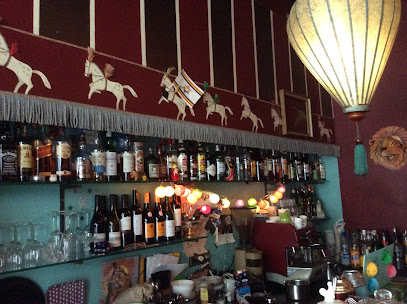
Jimmy's Bar Frankfurt
Discover the allure of Jimmy's Bar Frankfurt, where exquisite cocktails meet live music in an elegant setting.
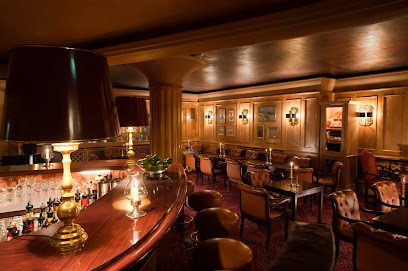
Luna Bar - Frankfurt
Experience the vibrant nightlife at Luna Bar - Frankfurt, where exquisite cocktails meet stylish ambiance in the heart of the city.
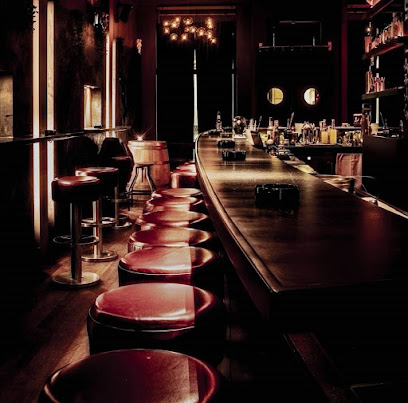
Pearly Gates
Discover the vibrant nightlife at Pearly Gates, a chic bar in Frankfurt offering exquisite cocktails and an inviting atmosphere.
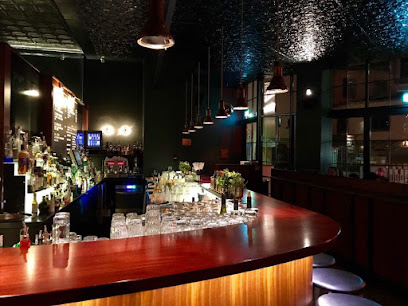
Old Fashioned Bar - Frankfurt am Main
Discover the vibrant nightlife of Frankfurt at Old Fashioned Bar, a cocktail haven known for its exquisite drinks and inviting ambiance.
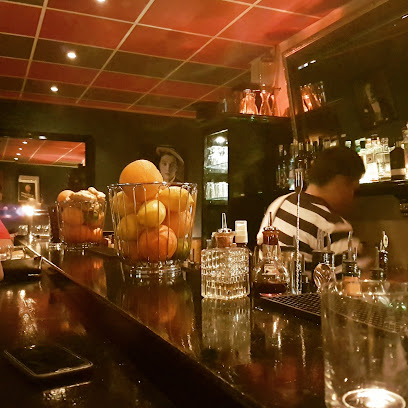
Roomers BAR - Frankfurt am Main
Discover Roomers BAR in Frankfurt: a stylish venue for exquisite cocktails and a vibrant atmosphere, perfect for a night out in the city.
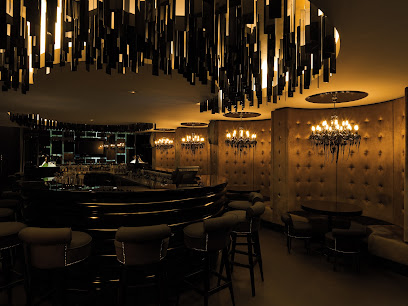
Harry's New York Bar - Frankfurt am Main
Discover the allure of Harry's New York Bar, Frankfurt's sophisticated spot for classic cocktails and vibrant nightlife in a trendy setting.
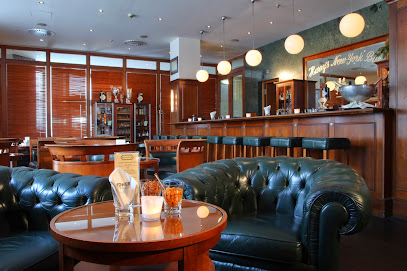
Local Phrases
-
- HelloHallo
[ha-lo] - GoodbyeAuf Wiedersehen
[owf vee-der-zay-en] - YesJa
[yah] - NoNein
[nine] - Please/You're welcomeBitte
[bit-te] - Thank youDanke
[dahn-kuh] - Excuse me/SorryEntschuldigung
[ent-shool-dee-gung] - How are you?Wie geht es dir?
[vee gayt es deer] - Fine. And you?Gut. Und dir?
[goot oont deer] - Do you speak English?Sprechen Sie Englisch?
[shpre-khen zee eng-lish] - I don't understandIch verstehe nicht
[ikh fer-shtay-uh nikht]
- HelloHallo
-
- I'd like to see the menu, pleaseIch hätte gerne die Speisekarte, bitte
[ikh heh-te gair-ne dee shpy-ze-kar-te, bit-te] - I don't eat meatIch esse kein Fleisch
[ikh es-se kine fli-sh] - Cheers!Prost!
[prohst] - I would like to pay, pleaseIch möchte bitte zahlen
[ikh merkhte bit-te tsah-len]
- I'd like to see the menu, pleaseIch hätte gerne die Speisekarte, bitte
-
- Help!Hilfe!
[hil-feh] - Go away!Geh weg!
[geh vekh] - Call the Police!Rufen Sie die Polizei!
[roo-fen zee dee po-lee-tsay] - Call a doctor!Rufen Sie einen Arzt!
[roo-fen zee i-nen arts-t] - I'm lostIch habe mich verirrt
[ikh hah-beh mikh feh-rirt] - I'm illIch bin krank
[ikh bin krahngk]
- Help!Hilfe!
-
- I'd like to buy...Ich möchte ... kaufen
[ikh merkhte ... kow-fen] - I'm just lookingIch schaue nur
[ikh shau-eh noor] - How much is it?Wie viel kostet es?
[vee feel koh-stet es] - That's too expensiveDas ist zu teuer
[dahs ist tso toy-er] - Can you lower the price?Können Sie den Preis senken?
[koon-en zee den prise zen-ken]
- I'd like to buy...Ich möchte ... kaufen
-
- What time is it?Wie spät ist es?
[vee shpet ist es] - It's one o'clockEs ist ein Uhr
[es ist iyn oor] - Half past (10)Halb elf
[halb elf] - MorningMorgen
[mohr-gen] - AfternoonNachmittag
[nahk-mit-tahk] - EveningAbend
[ah-bent] - YesterdayGestern
[ges-tern] - TodayHeute
[hoi-teh] - TomorrowMorgen
[mohr-gen] - 1Eins
[iyns] - 2Zwei
[tsvai] - 3Drei
[dray] - 4Vier
[feer] - 5Fünf
[foonf] - 6Sechs
[zeks] - 7Sieben
[zee-ben] - 8Acht
[ahkt] - 9Neun
[noyn] - 10Zehn
[tsayn]
- What time is it?Wie spät ist es?
-
- Where's a/the...?Wo ist ein/der...?
[vo ist iyn/dehr] - What's the address?Was ist die Adresse?
[vas ist dee ah-dreh-seh] - Can you show me (on the map)?Können Sie mir zeigen (auf der Karte)?
[koon-en zee meer tsai-gen (ouf dehr kar-te)] - When's the next (bus)?Wann kommt der nächste (Bus)?
[vann kohmt dehr nai-khste (boos)] - A ticket (to ....)Eine Fahrkarte (nach ....)
[iyn-eh fahr-kar-te (nahkh ....)]
- Where's a/the...?Wo ist ein/der...?
History of Frankfurt
-
Frankfurt am Main, often referred to simply as Frankfurt, traces its origins back to Roman times. The city was founded in the 1st century AD as a Roman military settlement and trading post. Its strategic location along the Main River made it an important point of trade and commerce in the region.
-
During the Middle Ages, Frankfurt flourished as a free imperial city within the Holy Roman Empire. It became an important center for trade fairs, drawing merchants from across Europe. In 1152, Frederick I Barbarossa was elected King of Germany at the city's St. Bartholomew's Cathedral, setting a precedent for future royal elections.
-
Established in 1454, the Frankfurt Book Fair is one of the world's oldest and most prestigious book fairs. It began as a local market for books and has since evolved into an international event, attracting publishers, authors, and literary enthusiasts from around the globe. Johann Gutenberg, the inventor of the printing press, played a significant role in the fair's early days.
-
Frankfurt is closely associated with Johann Wolfgang von Goethe, one of Germany's most renowned writers and intellectuals. Born in Frankfurt in 1749, Goethe's early life and works were heavily influenced by the city's vibrant cultural scene. His former home, now the Goethe House Museum, offers visitors a glimpse into his life and times.
-
The 19th century brought significant industrial growth to Frankfurt. The city's infrastructure expanded rapidly with the construction of railways, factories, and modern buildings. Frankfurt's stock exchange, founded in 1820, became one of the most important financial hubs in Europe, a status it retains to this day.
-
Frankfurt suffered extensive damage during World War II, with much of its historic center destroyed by Allied bombing raids. However, the post-war period saw a remarkable effort to rebuild the city. Landmarks such as the Römer, St. Bartholomew's Cathedral, and parts of the Altstadt (Old Town) were meticulously reconstructed to restore their historical appearance.
-
Today, Frankfurt is known as a global financial powerhouse. It is home to the European Central Bank, Deutsche Bank, and numerous other financial institutions. The city's skyline, dominated by sleek skyscrapers, reflects its status as one of the world's leading financial centers. Frankfurt's diverse population and vibrant cultural scene make it a dynamic and cosmopolitan city.
Frankfurt Essentials
-
Frankfurt is well-connected both domestically and internationally. Frankfurt Airport (FRA) is one of the busiest airports in Europe, offering numerous flights to and from major cities around the world. Once at the airport, you can reach the city center via train (S-Bahn lines S8 and S9), bus, taxi, or rental car. Frankfurt is also a major railway hub, with Deutsche Bahn trains connecting it to other German cities and neighboring countries. For those traveling by car, the city is accessible via the A3, A5, and A66 highways.
-
Frankfurt boasts an efficient public transportation system operated by RMV, which includes U-Bahn (subway), S-Bahn (commuter trains), trams, and buses. A single ticket allows transfers between different modes of transport within a specific time period. Taxis are readily available throughout the city, and ride-sharing services like Uber operate here as well. For a more eco-friendly option, consider using the city's bike-sharing program, 'Call a Bike,' which has stations all over Frankfurt. Walking is also a viable option, especially in the city center and along the Main River.
-
The official currency in Frankfurt is the Euro (€). Most establishments accept major credit and debit cards, but it's advisable to carry some cash for smaller purchases and in case you visit places that are cash-only. ATMs are widely available throughout the city. Many places also accept contactless payment methods such as Apple Pay and Google Wallet.
-
Frankfurt is generally a safe city, but it's wise to stay vigilant, especially in crowded areas like the Zeil shopping street and at major train stations. Avoid the area around the main train station (Hauptbahnhof) late at night, as it can attract individuals engaging in illicit activities. Keep an eye on your belongings and be cautious of pickpockets, particularly in tourist-heavy areas.
-
In case of emergency, dial 112 for immediate assistance. This number connects you to emergency medical services, the fire department, and the police. The city has several hospitals with emergency rooms, including University Hospital Frankfurt. Pharmacies ('Apotheken') are widely available, and some operate 24/7. Make sure to have travel insurance that covers medical emergencies.
-
Fashion: Do dress smart-casual, especially when dining out or attending events. Avoid overly casual attire like flip-flops and sportswear in more formal settings. Religion: Do respect religious customs when visiting churches. It's usually appropriate to dress modestly and remain quiet. Public Transport: Do validate your ticket before boarding. Don’t eat or drink on public transport. Greetings: Do greet people with a firm handshake and maintain eye contact. A slight bow of the head is also a sign of respect. Eating & Drinking: Do try local specialties like 'Apfelwein' (apple wine) and 'Handkäse mit Musik' (a type of cheese). Don’t rush your meal; dining is often a leisurely experience.
-
To experience Frankfurt like a local, take a stroll along the Main River and visit the weekly flea market ('Flohmarkt' am Mainufer) for unique finds. Explore the Sachsenhausen district for its traditional 'Apfelwein' taverns. Visit the Kleinmarkthalle for a variety of local and international food stalls. If you're a fan of arts and culture, don't miss the Museumsufer, a cluster of museums along the riverbank. For a nice day trip, consider visiting the nearby Rheingau wine region.
Nearby Cities to Frankfurt
-
Things To Do in Heidelberg
-
Things To Do in Koblenz
-
Things To Do in Wurzburg
-
Things To Do in Bonn
-
Things To Do in Rothenburg ob der Tauber
-
Things To Do in Cologne
-
Things To Do in Stuttgart
-
Things To Do in Echternach
-
Things To Do in Grevenmacher
-
Things To Do in Remich
-
Things To Do in Vianden
-
Things To Do in Dusseldorf
-
Things To Do in Diekirch
-
Things To Do in Strasbourg
-
Things To Do in Nuremberg
















